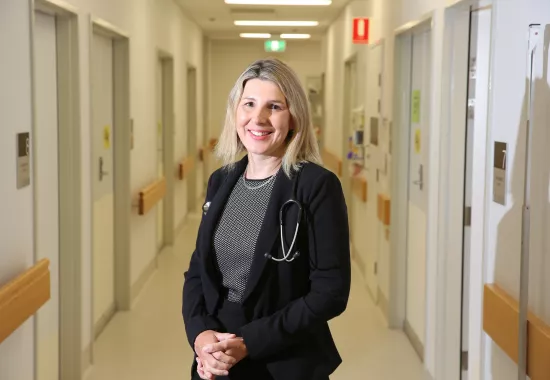With a concerning rise in the number of people developing Type 2 diabetes, our researchers at the Kolling Institute are offering hope and an effective way forward to reduce the impact of the serious disease.
Type 2 diabetes is the fastest growing chronic disease in the world, and if the current trend continues, it’s anticipated close to three million Australians will have the disease by 2025.
It often occurs in those who are over 40, overweight or if there’s a genetic predisposition, but increasingly doctors are seeing young adults and adolescents with the condition.
Sadly, many people may have the disease, and not realise it until the condition is well advanced.
Kolling Institute researcher and Royal North Shore Hospital endocrinologist Associate Professor Sarah Glastras said Type 2 diabetes is a crippling condition which can increase your chance of kidney failure, heart attack and stroke.
“There is no cure but it can be put into remission with lifestyle changes, with evidence suggesting that losing weight can help you manage your diabetes and return to normal blood sugar levels,” she said.
“It is an encouraging time with a range of new drugs, innovations and clinical trials in the pipeline which will offer tools and strategies to manage diabetes.
“In the next 12 months, there will be new combined medications which we expect will help with weight loss and the maintenance of glucose levels.
“These drugs will have the potential to halt the march of diabetes.”
For many people a combined approach of exercise, diet and medication will achieve significant results.
“I often tell my patients you can’t change your age or your genes, but we do have control over what we eat and how much exercise we do. Exercise is crucial to improving the body’s metabolism.”
New research is pointing to the benefits of a personalised diet program tailored to your individual gut microbiota.
“Importantly, there also needs to be greater access to these promising new medications, and a greater focus on the condition.
“Unlike cancer and heart disease, diabetes often doesn’t receive the attention and funding it deserves. There is a stigma associated with obesity and diabetes, a belief that people have brought it on themselves, neglecting the fact that it is a genetically driven disease.”
